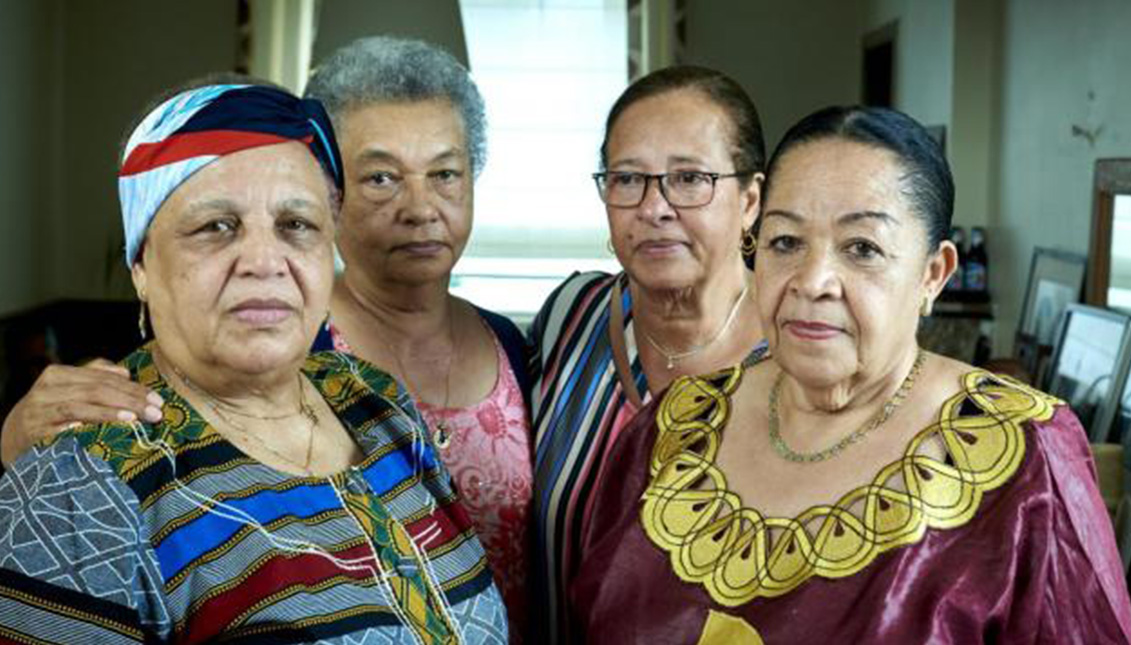
Biracial women confront Belgium with its dark colonial past
Known as 'métis', children of a white settler and a black woman, they are asking the Belgian government for compensation for having separated them from their…
Following the protests against racial inequalities in the United States, Belgium, once a powerful colonial empire, has also been forced to look back and suffer the consequences of its actions in Africa.
Five biracial women born during the colonial era in the Congo have filed a lawsuit in Brussels against the Belgian government for crimes against humanity and are demanding $55,000 compensation for each, plus extensive reparations for all the mixed-race children who were separated from their black mothers and locked up in religious institutions when Belgian authorities ruled the Congo between 1908 and 1960.
During the colonial period, the so-called 'Métis', children born to a white settler and an African mother, were separated from their roots as part of the Belgian policy of not promoting interracial links.
Bitu Bingi and Tavares Mujinga were two of the thousands of Métis raised by Catholic nuns in the country, far from their mothers, and at the age of 70 they have joined this global Black Lives Matter that in Belgium has brought down statues of Leopold II, guilty of millions of deaths of Africans during the colonial heyday, as well as the request that any emblem that pays tribute to that dark part of their history be removed from the European country.
"We have been destroyed, both morally and psychologically," Bitu Bingi told AP on Monday, the eve of the 60th anniversary of Congo's independence on June 30, 1960. "We have lost our identities. Excuses are not enough.
While the lawyer representing the five women, Christophe Marchand, confirmed that "there were official documents from the administration, it is a state crime that was organized by the Belgian colonial administration.
Despised in the country for their biracial heritage, Métis like Tavares, who was separated from her mother at the age of 2 when she was literally kidnapped by the Belgian government taking advantage of the fact that her father, a Portuguese, had left the country, were subjected to years of deprivation and abuse in institutions such as the mission of the sisters of St. Vincent de Paul in the Congo.
RELATED CONTENT
Their childhood in confinement and away from their families left them with scars that have never healed. Without psychological assistance or roots, these women live with a trauma that has marked them for life.
According to the legal documents, in all five cases the parents did not exercise their parental authority and the Belgian administration threatened the Congolese families of the children with reprisals if they refused to let them go.
"We have no identity. We don't know where we come from... We are nothing. Only 'children of sin', said one of the five plaintiffs, Noelle Verbeenken, using the expression that described these children when they arrived at the religious mission where they lived with 20 other little biracial and black orphans in terrible conditions.
"We didn't know how the chicken tasted. And one of the doors of our dormitory faced the morgue," Bitu Bingi recalled.
This is not the first time that the Belgian government has had to sing the mea culpa. In a letter to Congolese President Felix Tshisekedi on Tuesday, King Philip of Belgium expressed his "deepest regret" for the "acts of violence and cruelty" inflicted by his country on the Belgian Congo.
The Belgian executive also apologized last year for the theft of thousands of babies in the colonies.











LEAVE A COMMENT: